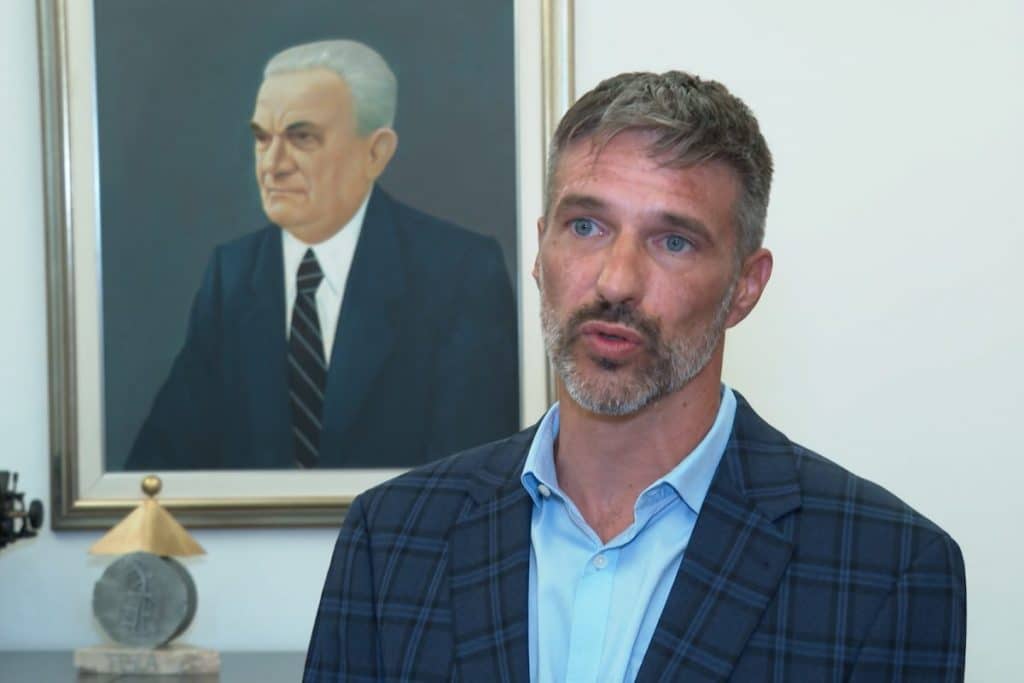Dražen Jakšić, director of the Hrvoje Požar Energy Institute, commented for N1 on energy prices and what scenarios are expected in the fall.
As for electricity prices, Jakšić said that they are many times higher in wholesale than a year ago, and that part of them is passed on to consumers, but also that households today pay a much lower price than the purchase price.


“In any case, the pressure is great due to the influence of the crisis in Russia and Ukraine, and now we have a situation where this is an extremely dry year in the whole of Europe, which has reduced the production of electricity from hydroelectric power plants and this affects the increase in prices on the wholesale markets. How it will be reflected in the price of the household also depends on the Government’s decisions, but someone will have to pay for the difference. In this case, there is a big burden on the suppliers, at the moment on HEP, which holds a large share of the retail market in Croatia,” said Jakšić.
He points out that the price we are paying now is not sustainable in the long term, but also that it is ungrateful to forecast how prices will move. “We have a disruption in supply and it is difficult to predict how prices will move, but there will certainly not be a significant reduction in prices in the next period, they will remain at high levels for several months, maybe even longer, and the question is how sustainable this is for the functioning of energy company”, said Jakšić.
About reductions
As for the mentioned power reductions, the director of the institute, Hrvoje Požar, said that he hopes that such a scenario will not occur. “However, the fact is that we have significantly less production from hydropower plants and a greater need for production from fossil fuels and imports, many European countries are facing a similar situation. I would say that the situation is worrying, but still not alarming, and we hope that there will be no need for reductions,” said Jakšić.
However, he gave advice to the citizens. “All citizens should be invited in as large a number as possible, as well as entrepreneurs, to take savings measures. “It has never been more important to save energy than now, so that we can avoid reductions in the winter, so that the reservoirs are fuller and so that the gas storages are as full as possible,” said Jakšić.
He also explained how the reductions will be implemented, if there are any.
“They are implemented according to the risk preparedness plan, which was created by the operator of the transmission and distribution system, is currently being approved by the European Commission, and it will define in more detail how any reductions would go. We haven’t had electricity reductions for many years and we hope that we won’t end up in such a situation. During the war, Dalmatia was cut off, so there were reductions at certain times of the day, but the reduction plan has been prepared and will be published when the European Commission publishes it,” said Jakšić.
Asked how much citizens can contribute, Jakšić reminded that the European Commission’s regulation calls for a 15 percent reduction in gas consumption in the winter period and that it allows member countries to determine the measures that should reach that goal. “For now, they are voluntary and non-binding, they invite citizens and entrepreneurs to save all forms of energy, not just gas. They can certainly contribute by changing behavior, that is, reducing the heating temperature in the winter months and increasing the temperature at which we cool down in the summer months. It is important to save now, while there is still energy, so that we can meet the winter better prepared for possible bigger disruptions in the supply”, said Jakšić.
Speaking about gas, Jakšić said that there are sufficient possibilities of importing through the LNG terminal and that no problems in supply are expected, but that the problem is the price, which is many times higher and which will certainly be reflected in the final prices of gas supply.
About Government measures
When asked what measures the Government plans to adopt, Jakšić said that he did not want to speculate.
“We as an institution help the ministry to design them and I would not like to list them in advance, but the most we can do as a community is to save heat, electricity and all other forms of energy as much as possible, so that we can get through the next period as easily as possible”. said Jaksic.
Track N1 via Android apps | iPhone/iPad and social networks Twitter | Facebook | Instagram.

